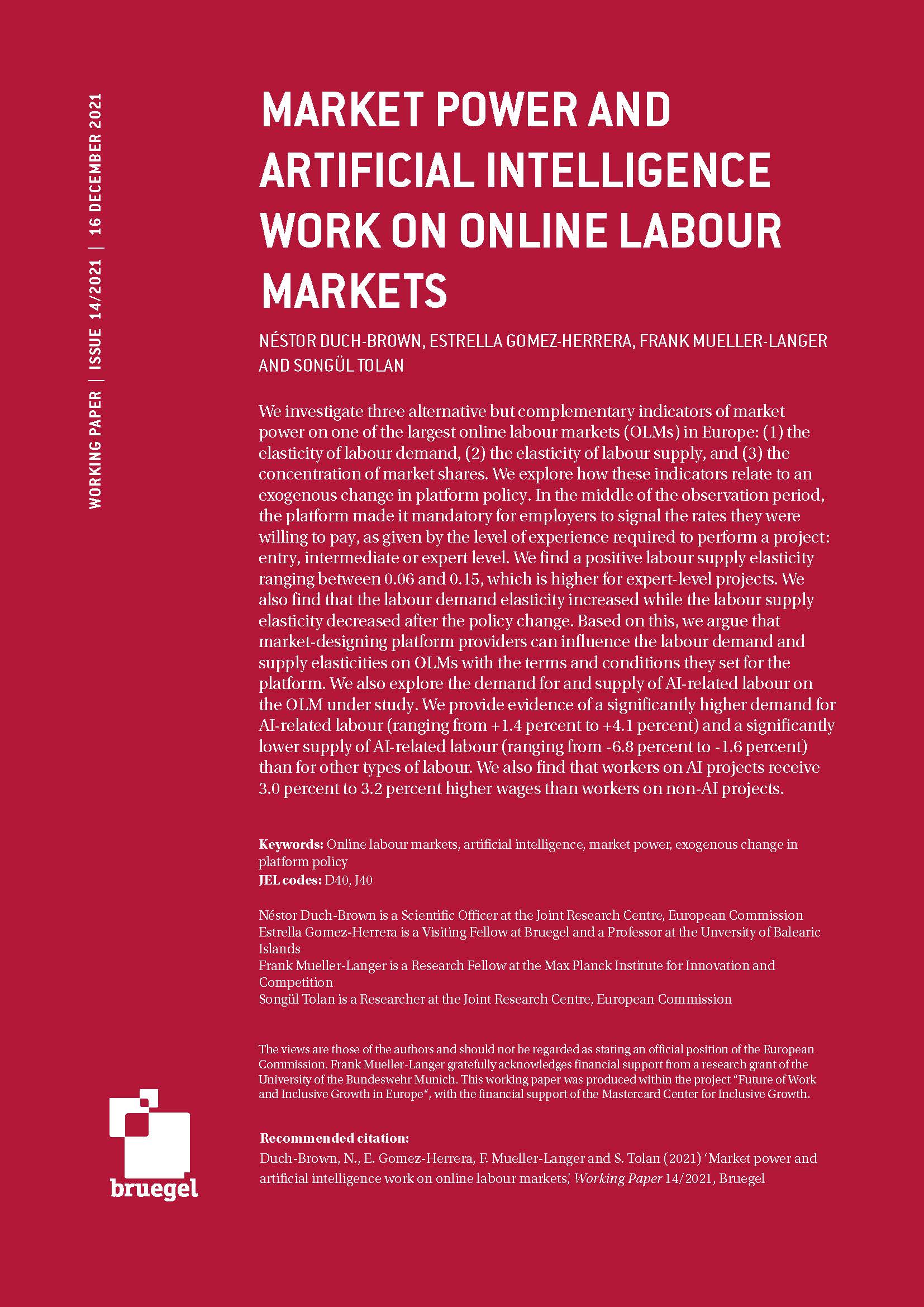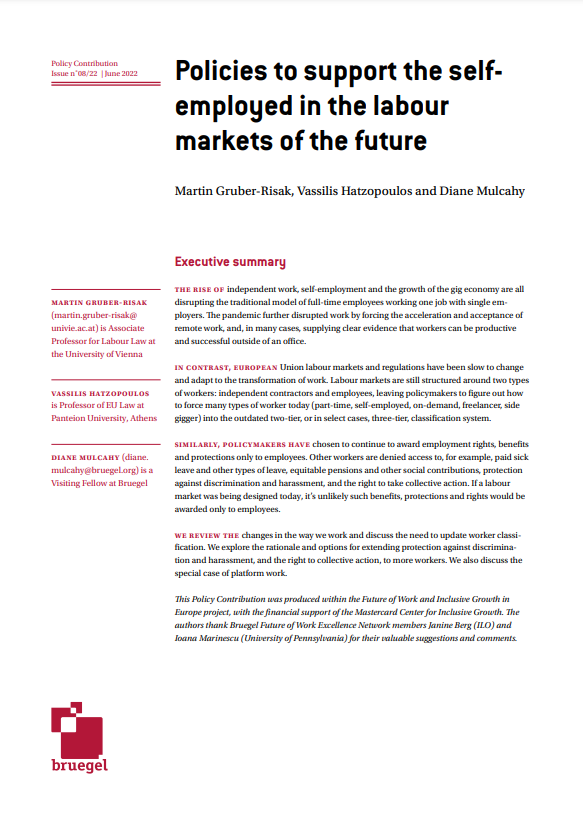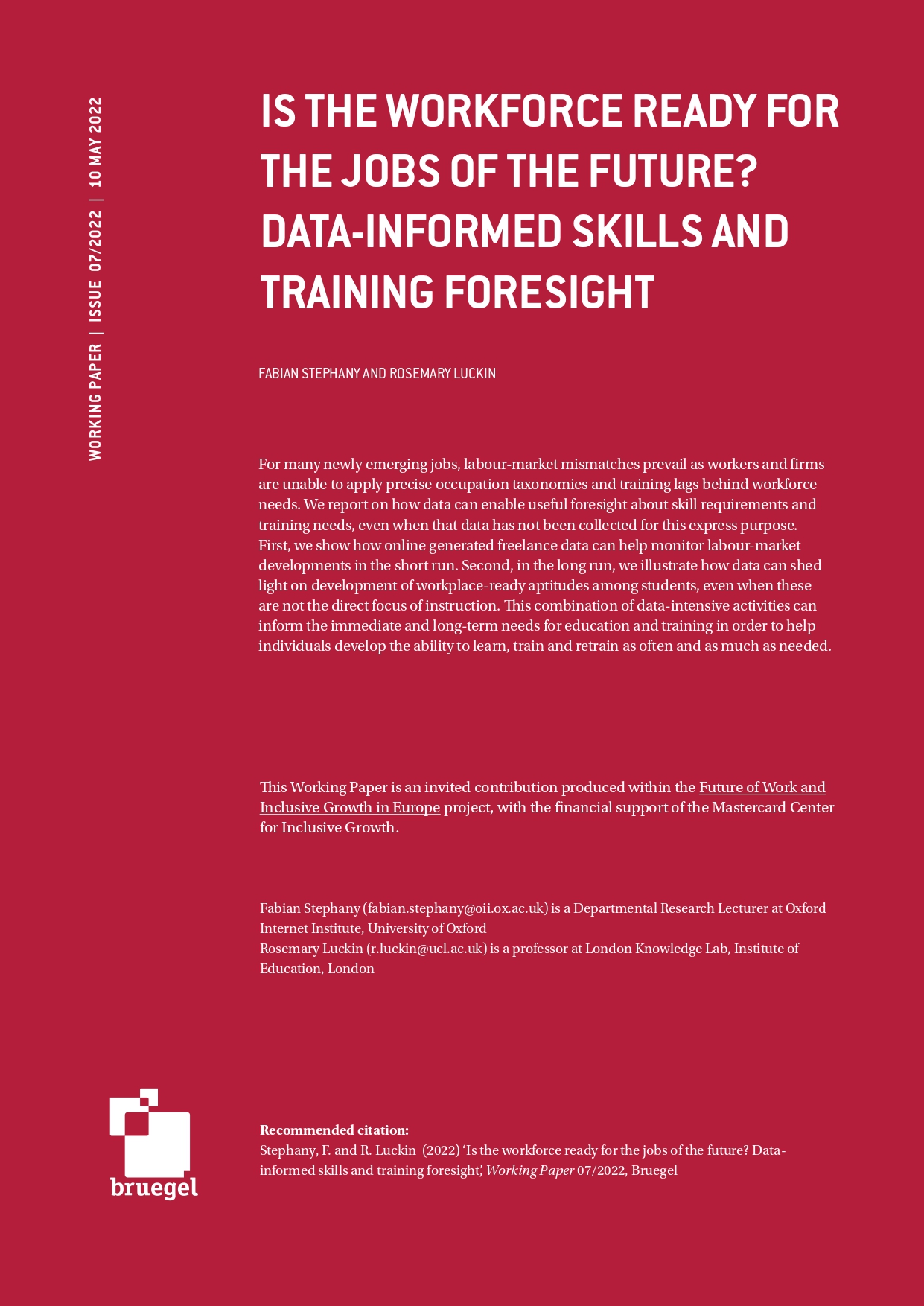Working Paper
Market power and artificial intelligence work on online labour markets
In this working paper, the authors investigate three alternative but complementary indicators of market power on one of the largest online labour markets (OLMs) in Europe.
The views are those of the authors and should not be regarded as stating an official position of the European Commission. Frank Mueller-Langer gratefully acknowledges financial support from a research grant of the University of the Bundeswehr Munich.
We investigate three alternative but complementary indicators of market power on one of the largest online labour markets (OLMs) in Europe: (1) the elasticity of labour demand, (2) the elasticity of labour supply, and (3) the concentration of market shares. We explore how these indicators relate to an exogenous change in platform policy. In the middle of the observation period, the platform made it mandatory for employers to signal the rates they were willing to pay, as given by the level of experience required to perform a project: entry, intermediate or expert level. We find a positive labour supply elasticity ranging between 0.06 and 0.15, which is higher for expert-level projects. We also find that the labour demand elasticity increased while the labour supply elasticity decreased after the policy change. Based on this, we argue that market-designing platform providers can influence the labour demand and supply elasticities on OLMs with the terms and conditions they set for the platform. We also explore the demand for and supply of AI-related labour on the OLM under study. We provide evidence of a significantly higher demand for AI-related labour (ranging from +1.4 percent to +4.1 percent) and a significantly lower supply of AI-related labour (ranging from -6.8 percent to -1.6 percent) than for other types of labour. We also find that workers on AI projects receive 3.0 percent to 3.2 percent higher wages than workers on non-AI projects.
Recommended citation:
Duch-Brown, N., E. Gomez-Herrera, F. Mueller-Langer and S. Tolan (2021) ‘Market power and artificial intelligence work on online labour markets’, Working Paper 14/2021, Bruegel
This working paper was produced within the project “Future of Work and Inclusive Growth in Europe“, with the financial support of the Mastercard Center for Inclusive Growth.








